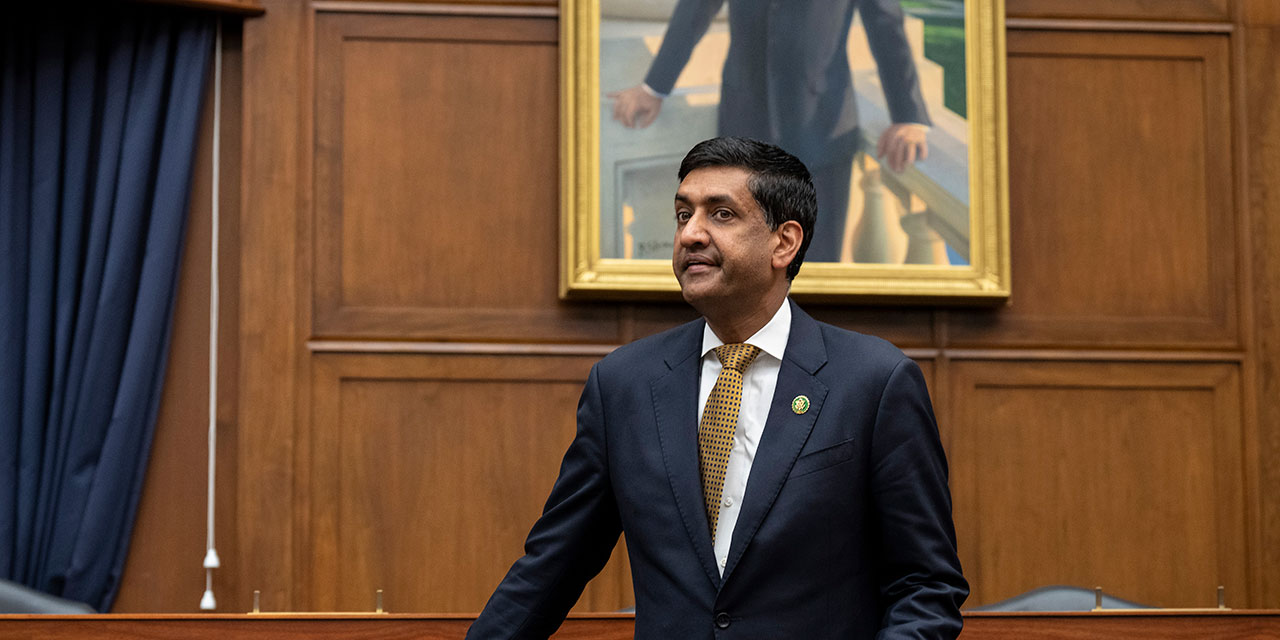
Ro Khanna is quickly becoming one of the most recognizable Democrats in the United States. The California congressman is a regular on cable news, a favorite on the podcast circuit, and fluent in the languages of Silicon Valley, industrial policy, and progressive idealism. Among political commentators, he’s often cast as the party’s future: a figure who can bridge divides, articulate an optimistic economic vision, and spar with conservative interlocutors without losing his composure.
Yet for all of Khanna’s surface appeal, his limitations as a political disruptor were on display last week during a Fox News exchange with Lawrence Jones. Asked whether the Democratic Party had become too “woke,” too “non-masculine,” and too aloof from everyday concerns, Khanna denied the charges, instead launching into a reverie about the party’s New Deal legacy and commitment to Medicare and Medicaid. In the process, he neatly sidestepped what voters find most alienating about the modern Left.
Finally, a reason to check your email.
Sign up for our free newsletter today.
Contrast his response with Rahm Emanuel’s recent comments. The longtime Democratic bigwig is now hitting President Trump on CNN as soft on crime and recently told the Wall Street Journal that the Democratic brand has become “toxic” and “weak and woke.” Emanuel, who is not shy about positioning himself for a 2028 run, is at least willing to tell it straight: the Democratic Party’s problems aren’t just about economic messaging or campaign mechanics. They’re cultural, and they’re deep.
You don’t have to like Emanuel to acknowledge that he’s diagnosing something real. For all the talk of “new economic patriotism,” the data are clear: working-class voters are abandoning the Democrats, black and Hispanic moderates are moving rightward, and younger voters are either disillusioned or disengaged. Poll after poll shows a party base uneasy about its future and unconvinced by its leadership.
This should sound familiar. In 2016, Donald Trump ran a campaign repudiating the GOP, not defending it. He didn’t excuse the party’s failures on trade, immigration, or foreign policy—he denounced them. He told Republican voters their party had let them down, and he invited them to help him tear it apart and start over. The result wasn’t exile. It was three consecutive presidential nominations and two general election victories.
What makes Khanna interesting, but ultimately limited, as a national candidate is his apparent unwillingness to follow Trump’s playbook and challenge his own party. Sure, he’s a gifted communicator, and he’s willing to call out the lunacy of schemes like “Grading for Equity.” But he’s still playing defense, still operating within the bounds of a coalition whose most unpopular instincts he refuses to name or confront.
Rather than challenge his party’s leftward drift, Khanna has embraced what Matthew Yglesias recently dubbed “dog-whistle moderation”—a kind of performative discomfort with the Left’s excesses that stops short of real confrontation. In this, he resembles former Transportation secretary Pete Buttigieg more than Trump: fluent, polished, and cautious.
Khanna would have lots of raw material if he wanted to launch a party-wide reckoning. Internal discontent is widespread. The morning after the 2024 election, New York representative Ritchie Torres blasted the far Left for driving away Latinos, blacks, Asians, and Jews with slogans like “Defund the Police,” “From the River to the Sea,” and “Latinx,” dismissing them as ivory-towered nonsense better suited to TikTok than the real world. Michigan senator Elissa Slotkin has similarly warned that many moderates see Democrats as culturally out of touch. Khanna has opted to sidestep these concerns.
Democrats are currently staging their own internal wonk war over the so-called abundance agenda—a technocratic vision for reviving state capacity and accelerating public-sector delivery. Its goals are broadly sensible, and it marks a welcome break from the more performative strands of progressive politics. But it is, at bottom, a coalition-management exercise.
As critics have observed, the liberal state’s failure to build is not incidental but the product of its design: a system of veto points and competing interests where symbolic gestures often take precedence over material outcomes. The abundance agenda aims to trim some of the procedural excesses without disturbing the underlying logic. That’s why it’s unlikely to resonate with the voters who have already tuned the party out.
The truth is, no Democratic candidate can break from the party’s past without saying plainly what many voters already believe: that the party is “weak and woke” and needs to change. In 2024, Kamala Harris marketed herself as a fresh start without ever specifying what, exactly, needed to be left behind. “In with the new” doesn’t work unless you say, “out with the old.”
Khanna says he wants to lead the Democrats forward. Forward from what? Until he’s willing to answer that question, he’ll remain what he is now: a gifted spokesperson for a crumbling coalition, a would-be reformer unwilling to name what needs reform.
Photo by Drew Angerer/Getty Images
City Journal is a publication of the Manhattan Institute for Policy Research (MI), a leading free-market think tank. Are you interested in supporting the magazine? As a 501(c)(3) nonprofit, donations in support of MI and City Journal are fully tax-deductible as provided by law (EIN #13-2912529).
Source link















